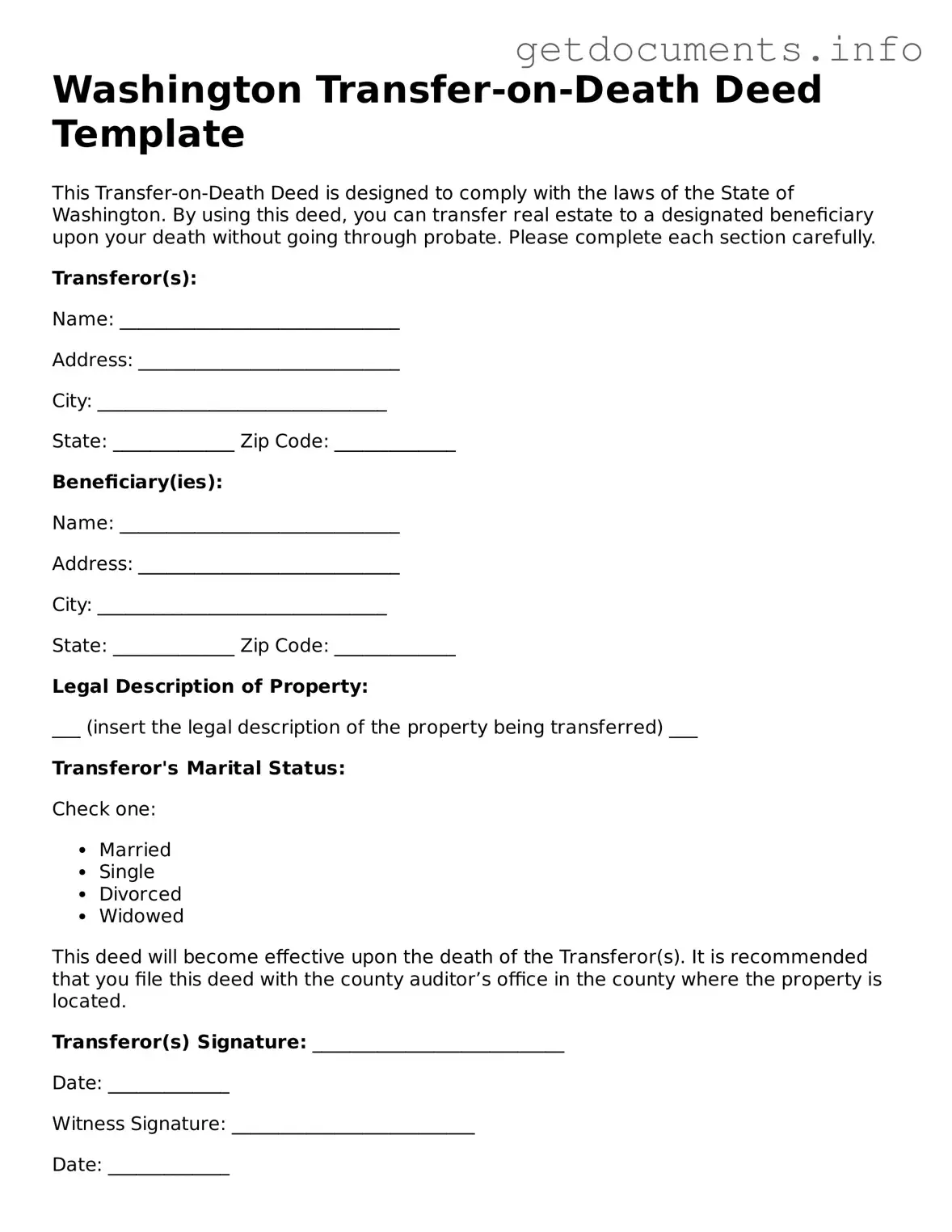Free Transfer-on-Death Deed Template for Washington
A Transfer-on-Death Deed is a legal document in Washington that allows property owners to designate a beneficiary who will receive their real estate upon their death, bypassing the probate process. This form provides a straightforward way to transfer property, ensuring that your wishes are honored without the complexities of traditional inheritance procedures. To learn more about how to fill out this form, click the button below.
Access Transfer-on-Death Deed Editor

Free Transfer-on-Death Deed Template for Washington
Access Transfer-on-Death Deed Editor
Got places to be? Complete the form fast
Fill out Transfer-on-Death Deed online and avoid printing or scanning.
Access Transfer-on-Death Deed Editor
or
⇩ PDF File
